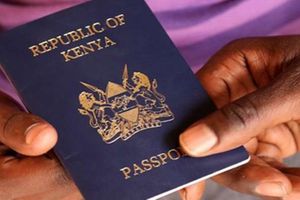Blueprint execution ‘soon’

What you need to know:
- Official implementation of a business environment improvement blueprint starts in July this year, a cabinet minister has said. This raises hope that Tanzania’s investment climate will be improved further to meet the requirements of the country’s industrialization requirements.
Dodoma. Official implementation of a business environment improvement blueprint starts in July this year, a Cabinet minister has said.
This raises hopes that Tanzania’s investment climate will be improved further to meet the country’s industrialization objectives.
The ministerial cabinet approved the blueprint early last year, setting the stage for a raft of amendments to laws and regulations governing conducting business in Tanzania.
The blueprint – prepared after thorough consultations with various private sector stakeholders and World Bank officials – will see to the government initiating amendments to various laws, including legislation on value-added tax (VAT), Immigration, Labour, Social Security and environmental management, as well as indicative prices for imports.
The changes – classified into ‘Quick Wins’ and ‘Medium Term Reforms’ – would also see to a review of several areas including port operations, regulatory bodies and fees paid to various government agencies by business operators.
In this, Tanzania seeks to market itself as an investment destination of first choice where bureaucracy and high costs of doing business will be things of yesteryears.
The Industry and Trade minister, Mr Joseph Kakunda, told The Citizen on the sidelines of the African Parliamentarians Network Against Corruption (APNAC) meeting in Dodoma recently that implementation of the document will be preceded by an action plan currently being put together.
The APNAC meeting discussed challenges impeding investment inflows.
“The action plan for the blueprint would be ready by June this year,” Mr Kakunda said, adding that it would act as a roadmap on the implementation of the blueprint that is intended to bring about harmonisation of business policies, laws, regulations, fees, taxes and levies.
“In the government’s endeavour to attract investors, we will devote efforts to implementation of the blueprint for regulatory reforms to improve business environments,” Mr Kakunda stated.
Speaking during the APNAC meeting, Muheza MP Adadi Rajabu (CCM) said an unfavourable business environment scares away potential investors.
“I travelled with the Parliamentary Budget Committee to Uganda. Surprisingly, I came to realise that a majority of the traders who used to trade at Kariakoo in Dar es Salaam had shifted their businesses to our neighbour,” Mr Rajabu said.
“Their decision is attributed to either an unfriendly taxation system or bureaucracy,” he stated.
But Mr Kakunda expressed optimism that, “with implementation of the blueprint, we stand a good chance to lure back investors we may have lost to our neighbours,” Mr Kakunda said, oozing confidence.
The minister of State in the President’s Office (Public Service and Good Governance), Mr George Mkuchika, said investments bear tangible fruits only if policy and legal challenges are effectively addressed.
“We are doing better when it comes to improvement of the business climate. However, we need to go the extra mile so that we can become more competitive in the global market,” Mr Mkuchika ventured to say.
The TradeMark East Africa Country director, Mr John Ulanga, called for flexibility in taxation to attract more investors.
“An investor should be treated like a good friend and not an enemy. This would attract both local and foreign investors to inject their capital into various economic ventures,” Mr Ulanga counselled.




